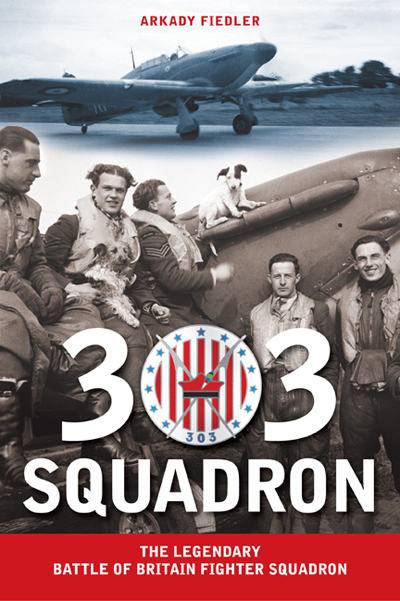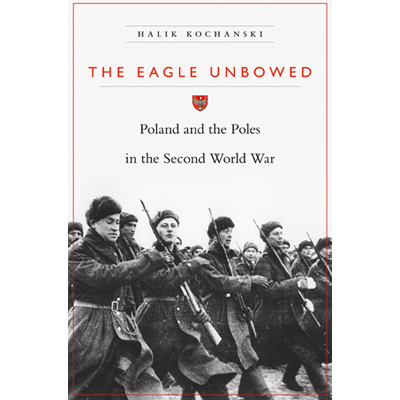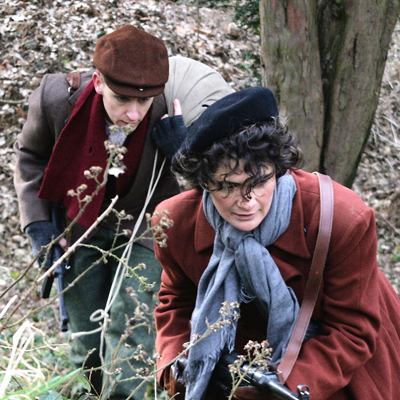 303 Squadron: The Legendary Battle of Britain Fighter Squadron
303 Squadron: The Legendary Battle of Britain Fighter Squadron
By Arkady Fiedler, translated by Jarek Garlinski
Illustrated; 368 pages
Aquila Polonica, Los Angeles 2010
One can imagine the excitement when the original Polish version of this book, Dywizjon 303, arrived in occupied Poland in a parachute drop in 1943.
All of Europe had collapsed like a house of cards blown over by the German storm that hit Poland in 1939 and spread to the rest of the continent in 1940. Only Britain didn’t give up and repelled the German air assault. Their Polish allies fought with them and here was the book relating the stirring saga of the Polish air force’s distinguished record in the defense of Britain under attack. Surely soon Poland will be helped by the British?
But that was not to be. Dywyzjon 303 continued to be read in Poland for decades after the war but not with excitement; rather, with a stoical pride. No help, British or any other, ever came to Poland. Instead, Poland’s allies turned her over to Hitler’s first ally, the Soviet Union.
Although the English version of Dywizjon 303 was a great success when published in 1942, when the war ended the Polish heroes of the Battle of Britain were soon ignored, indeed removed from the scene as though they never existed. To please Soviet Russia, Britain’s Labour Government would not permit the Polish forces to march in London’s victory parade, erasing them from the picture, Soviet style.
But eventually the Soviet Union withered away and its lies were exposed, while the Polish pilots and the injustice they and their comrades suffered could not be erased from the historical record. People remembered. The story began appearing in articles, films and books, notably Lynne Olson and Stanley Cloud’s marvelous Question of Honor in 2004. Aquila Polonica, the Los Angeles-based publishing house established in 2009 and dedicated exclusively to Polish World War II history acquired the rights to the original book, now published with a superb new translation.
The author, Arkady Fiedler, was a successful writer who, in 1939, was in Tahiti, researching his next book. When war broke out Fiedler rushed to join the Polish forces, first in France and then, after France fell, in England. There, he got authorization to stay with the Polish airmen and record their wartime history.
Fiedler was, in every sense other than the technical, one of them. He felt what they felt, the anxiety for family friends in Poland, the horror of knowing what the Nazis were doing in his country, the feeling of helplessness because they were so far from Poland, and above all, the determination to defeat Nazi Germany and restore freedom to the Polish people.
303 Squadron tells the story of these young men through their conversations at work and at play, through their diaries and logs, and through the observation of those around them. They are brave, gallant, stoical, yet the author states that they are “normal, healthy, down-to-earth fellows” with the same temperament, the same smile and the same worries as most other Poles. Personalities aside, they had also acquired great training in the Polish air force, and they had an impressive sense of duty.
Descriptions of aerial battles are vivid and frightening; these were not computerized aircraft – every man who scored a hit with his machine saw his adversary’s plane burst into flames, crew and metal falling into the channel below. They outperformed all other airmen, and although they suffered proportionately fewer losses, each loss weighed heavily on them.
To capture the immediacy and drama of the original text required a translator who was at once an artist and a historian. Jarek Garlinski is that, and more. Born in England to a Polish father and English mother both of whom were important figures in the Polish underground – she one of the few Britons to live through the war in Poland – Garlinski was educated at the University of Nottingham and the School of Slavonic and East European Studies at the University of London, as well as the University of Grenoble. With his linguistic skills and his sense of history, he wrote a translation that evokes the spirit of the times using language that speaks to the modern reader without missing a historical note.
Aquila Polonica’s two partners, Terry Tegnazian and Stefan Mucha, have once again produced a beautiful book, with 200 black and white photos, maps and illustrations, historical notes and brief biographies of the men of 303 Squadron. No surprise that it was a “History Book Club” selection. A riveting read, it not only tells the story but captures the mood of the epic battle that saved Britain, while it celebrates the daring and honorable young men who really lived by their motto: “For Your Freedom and Ours.”
CR




Pingback: 2014: The Year of Anniversaries
Aleksander Witold Herbst, 95 – is one of the Polish Pilots of 303 Squadron flying in WWII. He lives in Seattle area in the USA. Cpt Herbst has written a memoire and now a film “Spitfire Liberator – the Alex Herbst Story” is in production, by Blue Horizon films http://bluehorizonfilms.net/
You can see the trailer at https://www.youtube.com/watch?v=7wDJ0bHB5_c#t=16
Pingback: Bulletin Board Summer 2015
Hi
My wife’s late father, Jozef Szlagowski is the man sitting looking at the dog at the top of the photo on the front cover.
Regards
Tony.
Pingback: Poland As An Ally: WWII Photo Essay